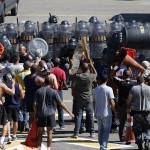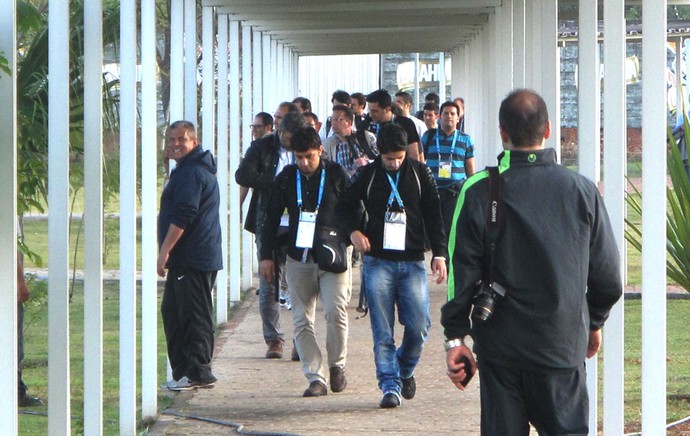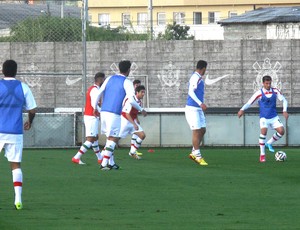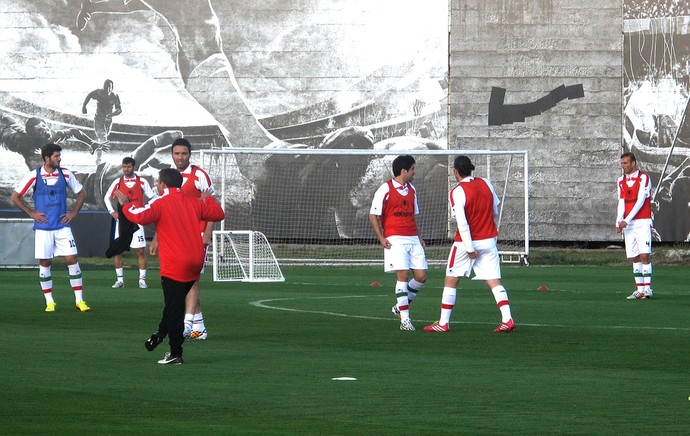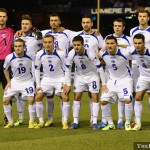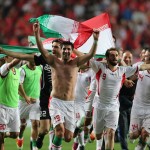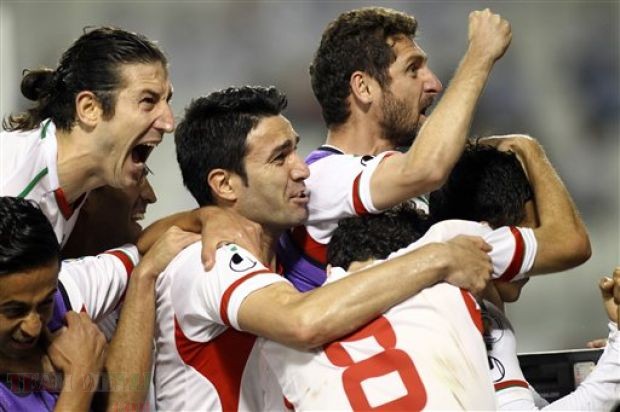Ali Kaffashian , the President of the FFIRI , briefed the Iranian press in Brazil about his activities in the last few days during the FIFA World Cup 2014. Kaffashian said “At first , we attended AFC Extraordinary Congress meeting in Sao Paulo. Many items were discussed such as the nomination for the vice president. Currently it is by appointment , but the general assembly approved the election by majority. We have voted for that.” The other major issue as far as we are concerned is the establishment of another regional zone in Asia which Iran will be part of.” in-principle’ creation of a ‘Central AFC’ Zone was approved at Monday’s Congress that will see the current South & Central Zone split into two.”
“The proposal, which was submitted by the football federation of Iran, will see the Islamic Republic and Tajikistan grouped with Afghanistan, Kyrgyzstan, Turkmenistan and Uzbekistan in a Central Zone which shall be recognized in the AFC Statutes. In this case , we (Iran) can have a member in the executive committee the AFC”
“The AFC will host an Extraordinary Congress in the period prior to the elective Congress in 2015 to determine the number of seats assigned to each zone on the Executive Committee.”
” The location of the headquarters will be in Tehran” Kaffashian added.
 |
 |
||
 |
 |
||
 |
 |
||
“The second meeting was the FIFA general Assembly meeting where several major issues were discussed including the removing the age limit on FIFA Presidency. The assembly approved that no age limit should be attached to the candidate” “FIFA Also approved a US$ 750,000 payment to its members. We have arranged with the Islamic Republic of Iran Embassy in Brazil to transfer the funds to Tehran. We will have no problem with the sanctions for the transfer.”
“FIFA also discussed the balance sheet which is quite healthy and much better than ours ( giggling). FIFA made a lot of profit and hence the payments to members are much better this years. After that meeting they took us to watch the opening ceremony of the World Cup , without eating lunch (…) which was quite difficult on me !”
“Eventually after all these engagement , we went to see Team Melli and the Iranian reporters, which was a nice break.”
Asked about Queiroz future with Iran , Kaffashian said “The negotiation with him has stopped, Queiroz wanted to clarify and finalize his situation way before the world cup. We did not give him a definite answer and that is because of several issues one of which was the results in the World Cup. Another one was the financial problems we were facing. If we do not get monetary support from somewhere , we will definitely have a problem. However , we have not reached a final decision on Queiroz although we think he is the best candidate. To get someone in the standard of Queiroz is going to be costly. The majority here are against the appointment of a local Iran coach for Team Melli.”
Ali Kaffashian , the nice man that he is with a permanent smile on his face, is known to providing the media with inaccurate , sarcastic , conflicting and sometime speculative statements. While AFC has not yet decided where the Headquarter of the Central Asian Federation will be located, Kaffashian has already said it is in Tehran! As for the money transfer, regardless to where the money is originated be it Brasilia or Timbuktu , the transfer will have to pass through New York Financial and banking system where the US government has a tight control and can stop such transaction like they have done a million times before despite their knowledge that the funds transfer is for an NGO like the football federation.
As for Queiroz, Kaffashian continues his conflicting and inconsistent statements. He has claimed on several occasions that FFIRI has negotiated with Portuguese coach on contract extension, while Queiroz himself categorically denied it. Kaffashian even mentioned that Queiroz has set his price and he (Kaffashian) managed to reduce it to an acceptable figure!. The head of FFIRI moves the goalpost now by mentioning that the extension of contract with Queiroz is dependent on Iran’s result in the World Cup , which was never an issue for renewal of Queiroz contract until now! With all the conditions and difficulties he laid , Kaffashian is adamant that Queiroz is the only candidate for FFIRI at the moment!

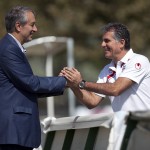
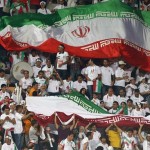

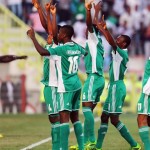

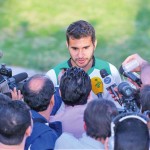

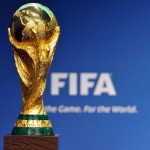
.jpg) A European team has never won the World Cup when in South America. An Asian team has never actually won a game on the soccer-crazy continent ― although 1978 was the last time the tournament was held there.
A European team has never won the World Cup when in South America. An Asian team has never actually won a game on the soccer-crazy continent ― although 1978 was the last time the tournament was held there. .jpg) Coached by respected Italian tactician Alberto Zaccheroni, Japan’s attack has been scoring plenty of late. In June, it scored a 3-1 win over Costa Rica, and then beat Zambia 4-3. However, as the scores suggest, Japan is not quite as strong at the back, but should have the talent to get at least into the second round.
Coached by respected Italian tactician Alberto Zaccheroni, Japan’s attack has been scoring plenty of late. In June, it scored a 3-1 win over Costa Rica, and then beat Zambia 4-3. However, as the scores suggest, Japan is not quite as strong at the back, but should have the talent to get at least into the second round..jpg)



